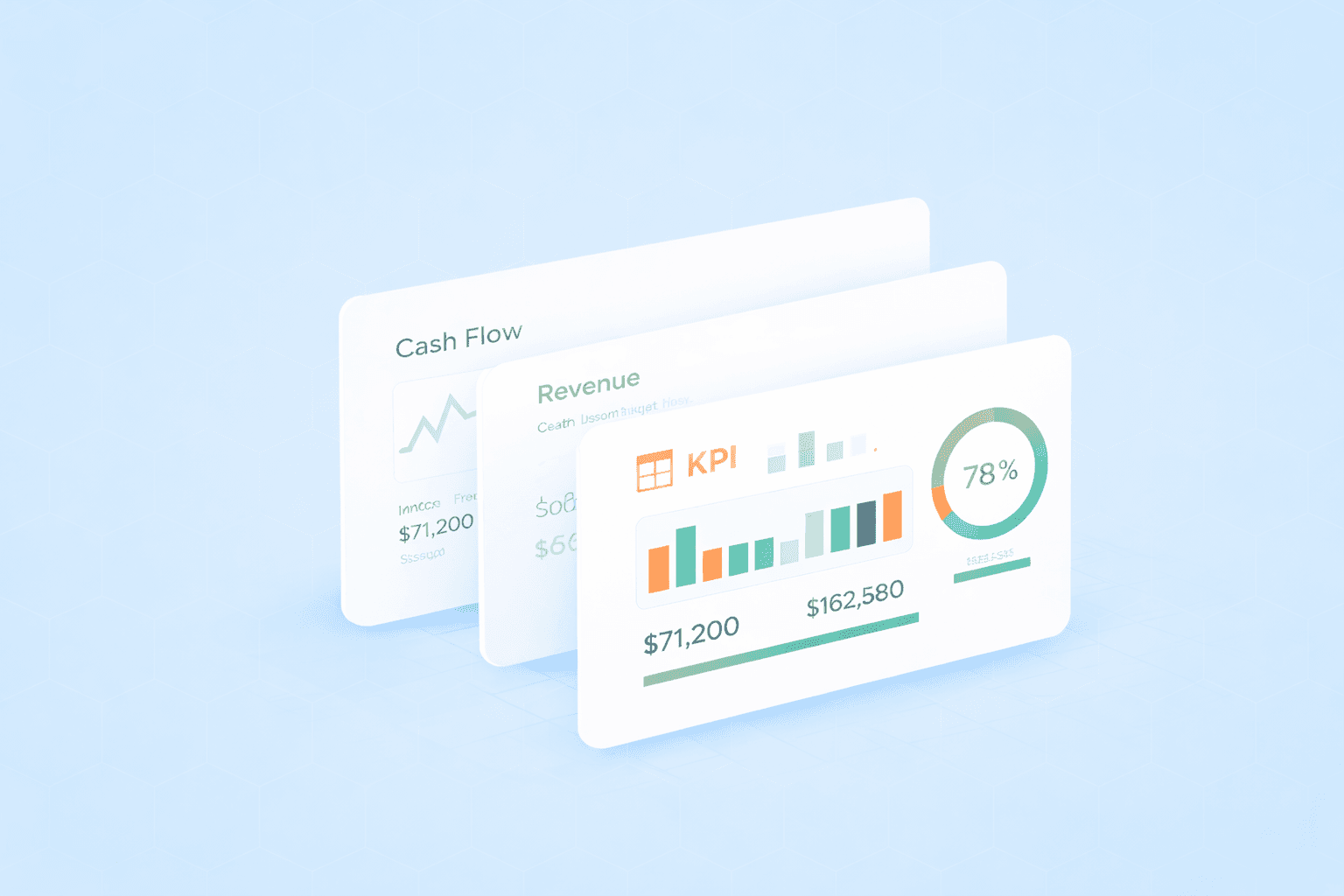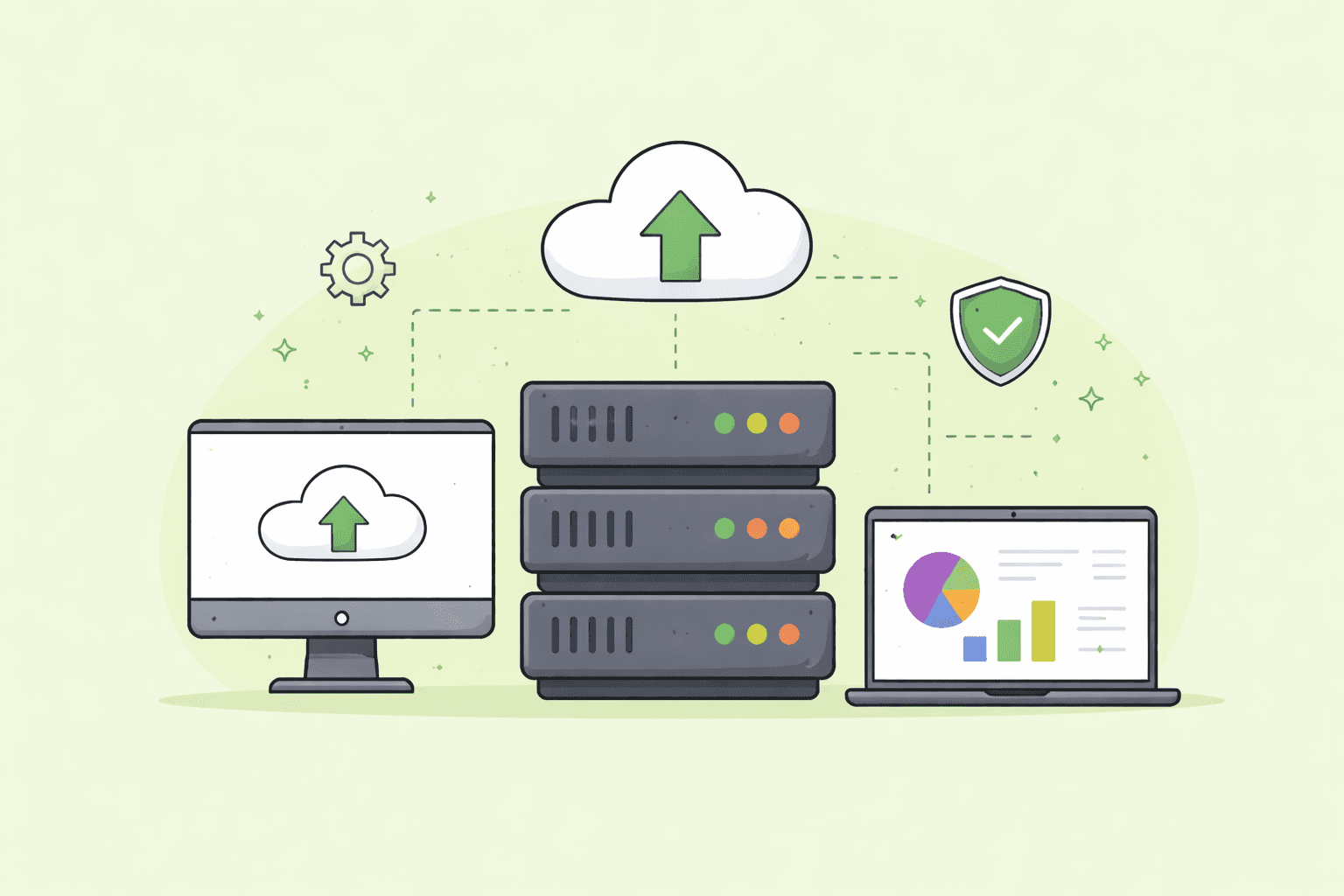Cloud Wars 2025: Shocking New Moves from AWS, Azure & Google Cloud
Discover the biggest cloud computing shifts of 2025 as AWS, Azure, and Google Cloud unveil next-gen AI, hybrid cloud, and quantum tech. Explore what’s new, who’s leading, and how to choose the right platform for your business.

In the fast-moving world of cloud computing, 2025 is already shaping up to be a transformative year. The three industry leaders Google Cloud Platform (GCP), Amazon Web Services (AWS), and Microsoft Azure are pushing the boundaries with next-gen AI capabilities, advanced hybrid cloud models, and more transparent, usage-based pricing structures. As businesses demand faster, more secure, and sustainable solutions, each platform is rolling out innovative tools to capture developer attention and enterprise trust.
From AI-first development environments to integrated quantum computing frameworks, the evolution is rapid. Whether you're a startup or a global enterprise, staying informed about the latest in cloud platforms 2025 is essential. Let’s explore what’s new in AWS, Google Cloud, and Azure, and how they compare.
AWS in 2025: Smarter, Leaner, and More AI-Driven
What’s New in AWS Cloud Services?

In 2025, Amazon Web Services (AWS) continues to lead the cloud market by focusing on three key pillars: performance, intelligence, and global scalability. Whether you're a developer, an enterprise IT leader, or just starting to explore the cloud, AWS has introduced some game-changing features that aim to make cloud infrastructure smarter, faster, and more efficient.
AI-Powered Elastic Compute
AWS has taken automation to the next level by integrating artificial intelligence into its popular EC2 services. This means the platform can now analyze your application’s needs in real-time and automatically adjust computing resources helping businesses save up to 30% on infrastructure costs.
Think of it as a smart engine that runs your cloud setup efficiently without you needing to constantly fine-tune it. Perfect for companies with unpredictable or heavy workloads.
AWS Quantum Edge
Pushing the boundaries of innovation, AWS introduced Quantum Edge, a futuristic service that blends quantum computing with edge technology (closer to the user).
What does that mean in simple terms? Faster processing for complex tasks like real-time financial trading, medical research, or even self-driving cars all without depending on far-away data centers. It's advanced, yes, but it's laying the groundwork for the next wave of cloud-based applications.
Serverless 2.0
AWS has also upgraded its serverless technology, which lets developers run apps without managing servers at all. The new Serverless 2.0 version is faster, supports more programming languages (like Rust, Go, and Kotlin), and is easier to secure.
For developers, this means less time on setup and more time building apps. For businesses, it means faster time-to-market and reduced operational hassle.
“AWS what’s new” in 2025? You’ll find a stronger push toward:
Smarter automation with AI and ML tools.
Easier ways to run apps across different cloud providers (multi-cloud).
Tools to measure and reduce your cloud carbon footprint.
Support for emerging technologies like blockchain and quantum computing.
Whether you're scaling a startup or modernizing an enterprise, AWS Cloud continues to evolve with the flexibility and power to meet you wherever you are in your cloud journey.
Google Cloud Platform (GCP): Building a Developer-First Ecosystem

What’s New in Google Cloud Platform?
Google Cloud Platform (GCP) is stepping into 2025 with a strong focus on innovation, simplicity, and sustainability. Known for its deep roots in AI and data, GCP is now making powerful tools more accessible to businesses of all sizes from startups to enterprise tech teams.
Vertex AI Agent Builder
One of Google Cloud’s most exciting updates is the Vertex AI Agent Builder. It allows businesses to create their own intelligent AI agents like chatbots or virtual assistants in just minutes, without needing a team of data scientists.
It’s ideal for customer service, HR, sales, and other areas where personalized automation can save time and improve user experience.
Green Compute
Sustainability is no longer optional, and GCP is leading the charge. With real-time carbon footprint tracking available per project, companies can now measure the environmental impact of their cloud usage and take steps to optimize it.
For organizations focused on ESG goals or green tech, this is a huge step forward.
Fully Managed Web3 Stack
Blockchain developers, take note: GCP now offers a fully managed Web3 infrastructure, making it easier to build and scale decentralized apps (dApps) with enterprise-grade tools.
Whether you’re working on crypto, NFTs, or next-gen finance platforms, Google Cloud’s secure, scalable architecture now supports the full Web3 development lifecycle.
Wondering what Google Cloud is doing differently in 2025?
Unlike other platforms, GCP is focused on democratizing advanced AI, making cutting-edge tools simple to use through intuitive software, and offering seamless multi-cloud integration for businesses that don’t want to be locked into a single provider.
Whether you're a tech-savvy builder or a business leader exploring digital transformation, Google Cloud Platform software is evolving to be more accessible, intelligent, and environmentally conscious without compromising on power or performance.
Microsoft Azure in 2025: Hybrid Cloud Powerhouse

What’s New in Microsoft Azure: 2025 Highlights
In 2025, Microsoft Azure continues to solidify its role as the go-to platform for enterprise cloud computing, hybrid solutions, and AI-powered development. With a strong focus on flexibility, security, and deep integration with Microsoft tools, Azure is especially appealing to large organizations and teams that need to bridge on-premises systems with modern cloud infrastructure.
Azure Arc 2.0: Seamless Hybrid Cloud
Azure Arc 2.0 is designed for businesses running a mix of on-premises, multi-cloud, and edge environments. The new version brings even deeper integration with non-Microsoft platforms making it easier to manage and secure your infrastructure, no matter where it runs.
Whether you're dealing with regulatory requirements or simply want more flexibility, Azure Arc is now a top choice for hybrid cloud environments.
Azure Quantum Goes Mainstream
Once experimental, Azure Quantum is now a practical service. With Quantum-as-a-Service fully available, developers and researchers can tap into quantum computing power for real-world applications in fields like optimization, finance, and materials science all through the Azure cloud.
This move positions Microsoft at the forefront of emerging technologies in the cloud space.
AI in DevOps with GitHub Copilot
AI is now deeply embedded into Azure DevOps, thanks to tighter integration with GitHub Copilot. Developers get real-time code suggestions, automated testing support, and faster deployment workflows all powered by generative AI.
The result? Better software, faster releases, and more productive teams across the board.
Curious about the Azure vs AWS conversation in 2025?
Azure is gaining ground, especially among large enterprises, thanks to its trusted Microsoft ecosystem, built-in security, and powerful offerings like Azure Standard and Microsoft Azure cloud computing tools. For organizations already using Microsoft 365, Dynamics, or GitHub, Azure provides a seamless path to scalable, secure cloud adoption.
Microsoft Azure cloud is no longer just an alternative to AWS or Google Cloud it’s a full-fledged leader in hybrid cloud, enterprise-scale applications, and future-facing tech like quantum and AI.
AWS vs Azure vs Google Cloud: Who’s Winning in 2025?
With all the innovation happening, the AWS vs Azure vs Google Cloud question is more relevant than ever.

Final Thoughts: Choosing the Right Platform in 2025
The best cloud platforms in 2025AWS, Google Cloud Platform (GCP), and Microsoft Azure all offer advanced capabilities, but the right choice depends on your needs.
Choose AWS Cloud for unmatched scalability, a broad range of services, and industry maturity. It's ideal for businesses looking for global infrastructure and enterprise-ready tools.
Opt for Google Cloud Platform if your focus is on AI, data analytics, or sustainability. GCP excels in developer experience and innovation, especially with tools like Vertex AI and BigQuery.
Go with Azure Cloud if you're an enterprise that relies on Microsoft products or needs hybrid cloud flexibility. Azure integrates seamlessly with Windows, Office 365, and GitHub.
If you're considering AWS vs Azure vs Google Cloud, weigh your priorities/performance, AI, hybrid support and choose the platform that aligns best with your strategy.




